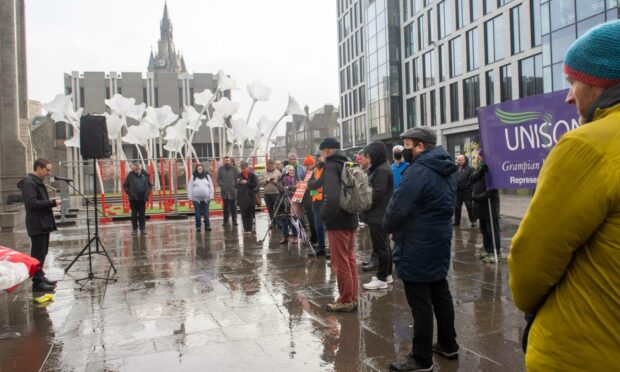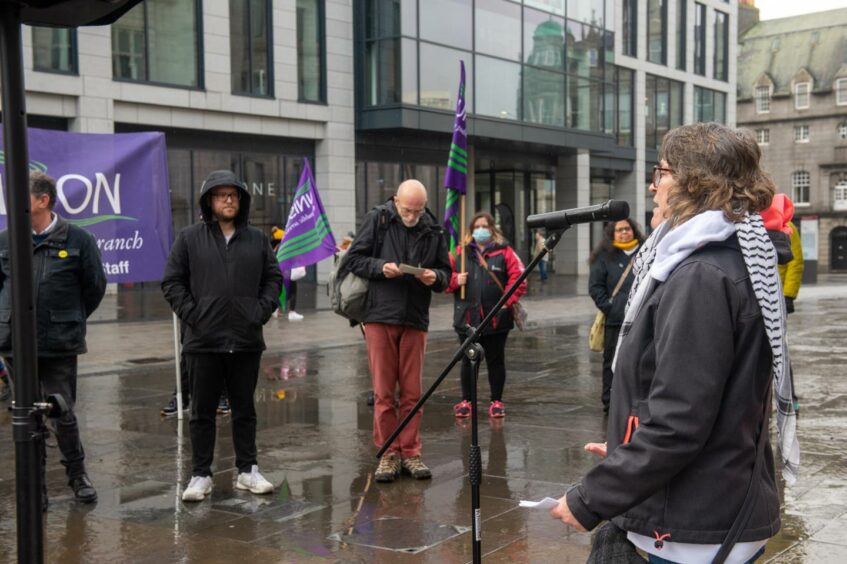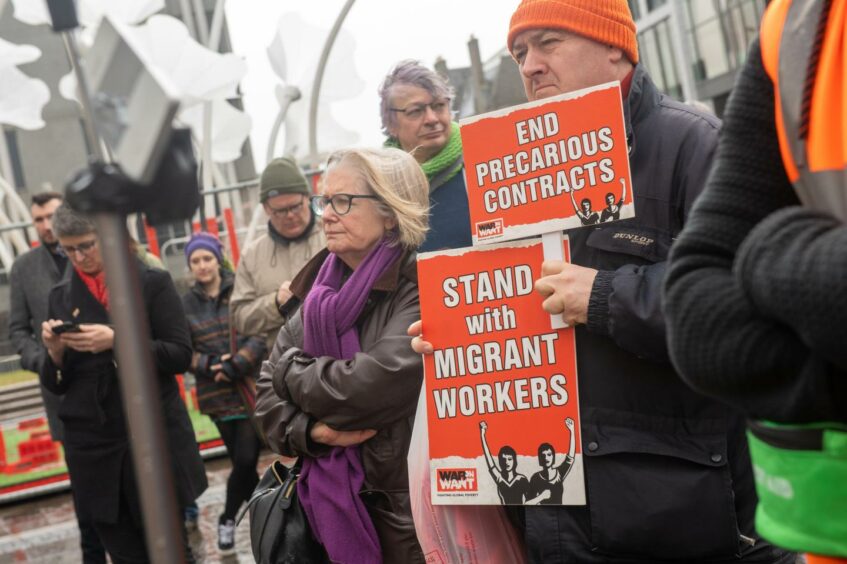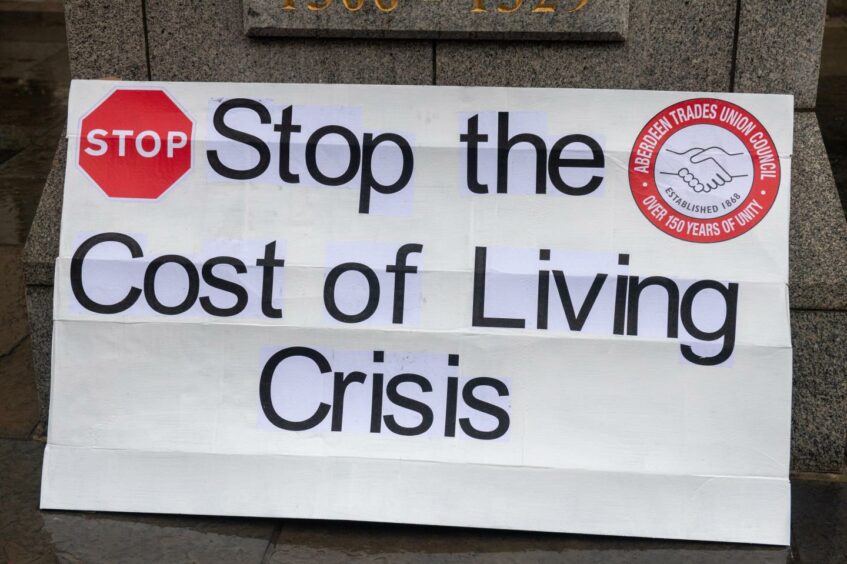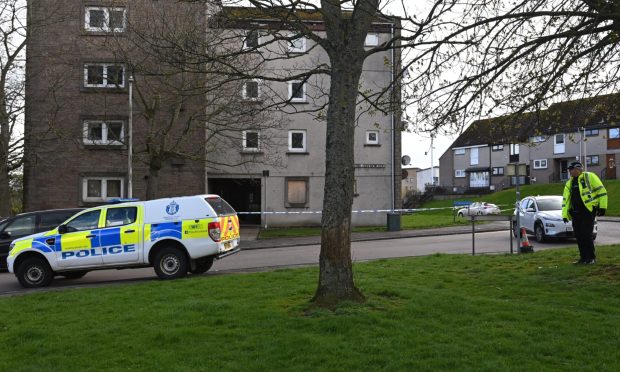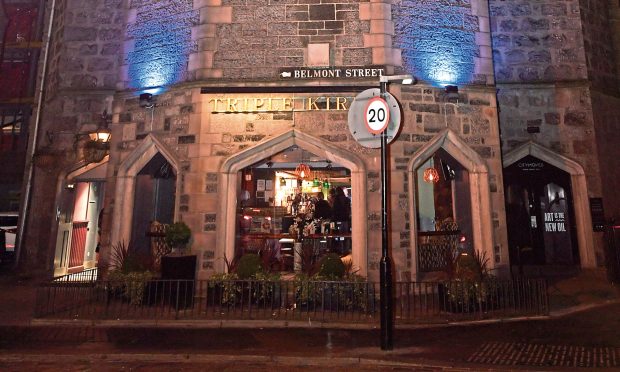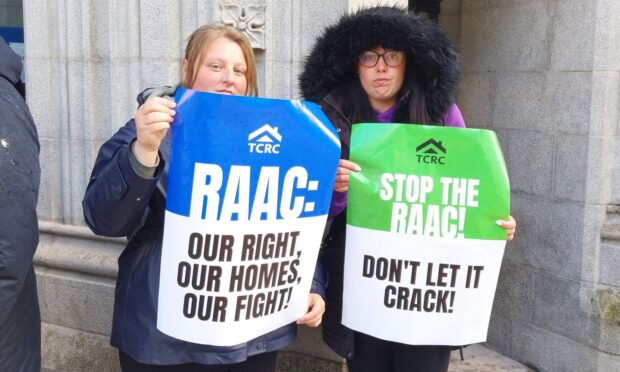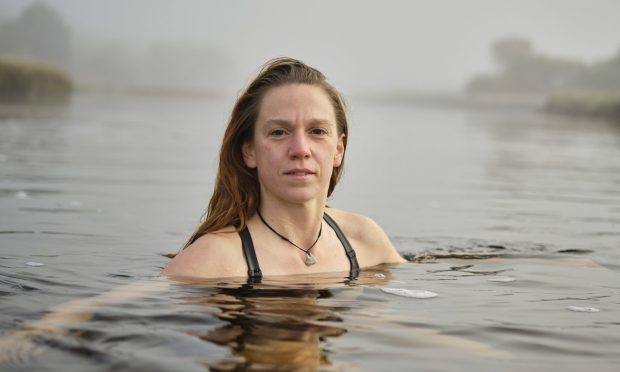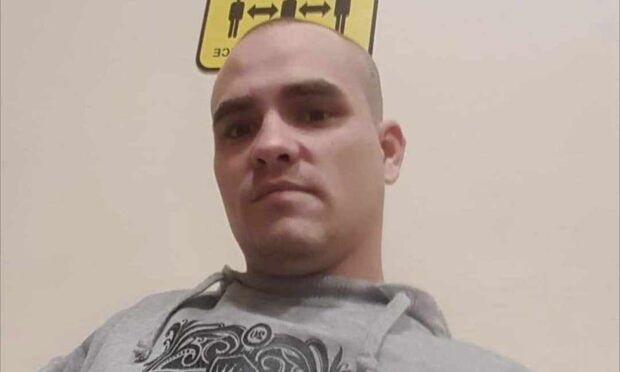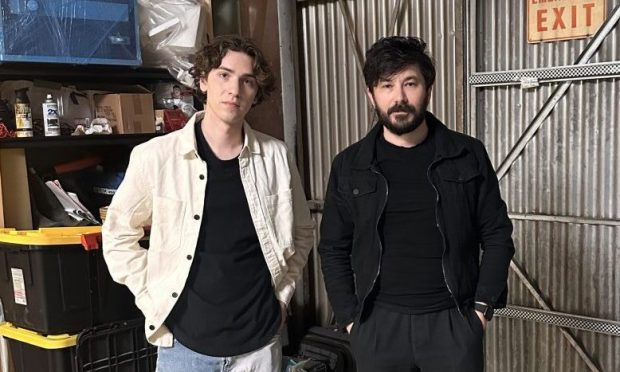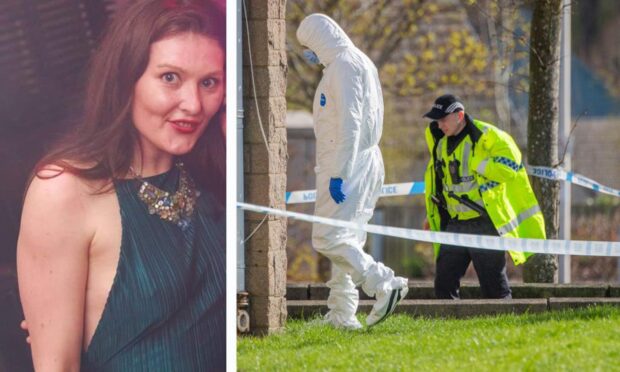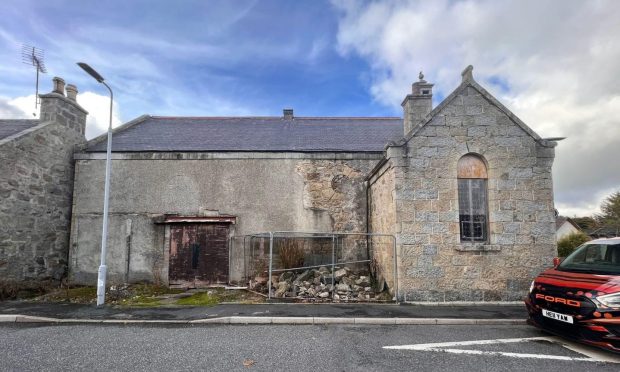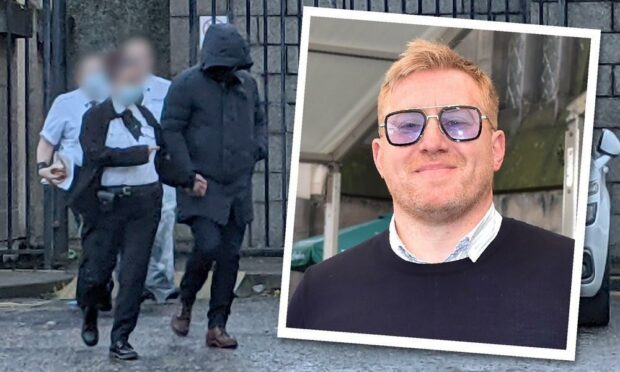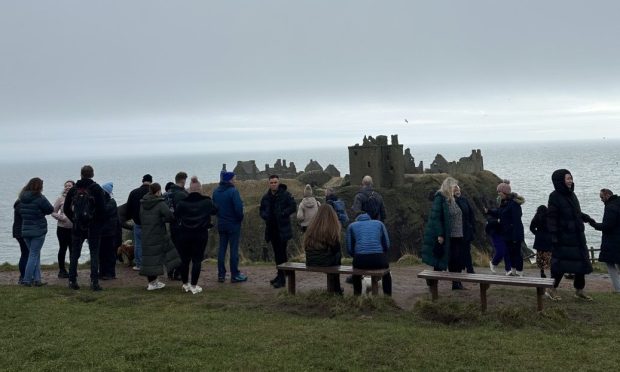North-east residents gathered in Aberdeen to protest the soaring cost of living.
Aberdeen Trades Union Council (ATUC) organised the event which took place outside Marischal College at 12.30pm on Saturday.
Despite the poor weather, union members and others met with eye-catching flags and banners to protest the rising costs of gas, electricity and fuel.
Scheduled speakers shared their own experiences with the crowd, as well as the importance of fighting against the “unacceptable” and “devastating” cost of living crisis.
The speeches gradually drew more and more people to the event, which was one of many protests taking place across the country.
Kate Ramsden, from ATUC, introduced each of the speakers and described the “critical issue” currently facing society – especially those who are poor and vulnerable.
Ofgem recently announced the energy price cap will rise by 54% in April, which will force many people to choose between eating and heating.
Those who would usually pay around £1,200 per year for energy could now pay up to £2,000.
Impact on finances and health
Simon Watson, a regional organiser from Unison, spoke about the significant impact rising living costs will have on the critical workers who have kept society going throughout the pandemic.
He said: “It’s great to see how many people have turned out in very short notice in this changeable Aberdeen weather to make a statement for union members, and the working people generally, about this crisis.
“The crisis effect is affecting everyone in our society. Covid has rightly caused great concerns about people’s mental health, but the cost of living crisis is not only hurting people’s pockets, the stress is making people’s mental health worse as well.”
Looking at Aberdeen specifically, Mr Watson highlighted that the city’s households are worse than the Scottish average for “financial problems”, and that action is needed to prevent deprivation from rising further.
Rising costs affect everyone
During her speech, north-east MSP Maggie Chapman highlighted the extent of the living crisis.
“We know that we face an unprecedented cost of living crisis in Scotland, and indeed across the UK. Inflation is rising. Basic food is becoming unaffordable for many people,” she said.
“The increase in national insurance will hit the poorest the hardest, and the cruel and inhumane cut to Universal Credit will leave many more people unable to heat their homes and feed their families.
“Then, of course, we have the much talked about hikes in energy prices.”
Protest organiser Doug Haywood was the final speaker to address the crowd and used his time to passionately encourage the public to continue fighting to change the system.
“Use your rage. Get out there, join a union, connect in your community. Build. Act,” he said.
“Networks of mutual aid make us strong. Connections make us human. Together we are powerful. Together we can demand a lot more than we ever can as individuals.”
